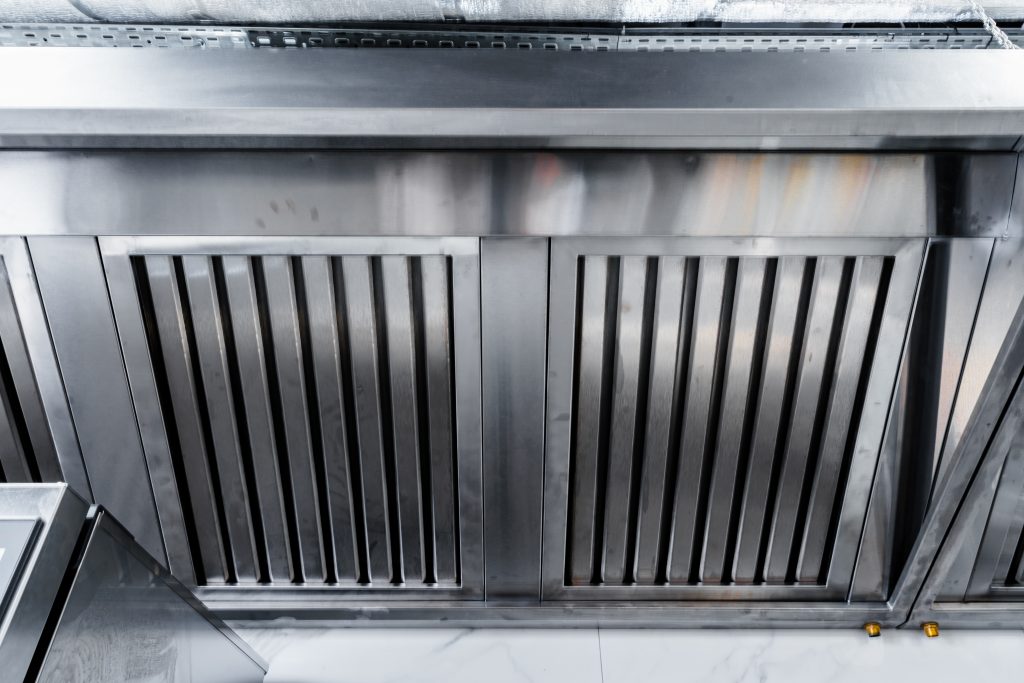
Fire safety in commercial kitchens is a critical concern for Michigan business owners. Grease buildup in kitchen exhaust systems creates significant fire hazards, making regular hood cleaning essential for protecting lives and property. Michigan law requires professional hood cleaning services through Public Act 207 of 1941, which mandates that all fire suppression system maintenance in state-regulated facilities must be performed by certified firms.
Commercial kitchen operators must understand their legal obligations regarding hood cleaning frequency and maintenance standards. The Bureau of Fire Services oversees these requirements in Michigan, ensuring that ventilation systems meet strict safety guidelines to prevent potentially devastating kitchen fires.
Regular professional hood cleaning not only keeps your business compliant with state regulations but also maintains a safe environment for staff and customers. Certified hood cleaning companies in Michigan have the proper training and equipment to clean exhaust systems thoroughly and document their work for compliance purposes.
Key Takeaways
- Michigan state law mandates professional hood cleaning services for commercial kitchens
- Certified firms must perform all hood cleaning and fire suppression system maintenance
- Regular hood cleaning maintains compliance and prevents dangerous grease fires
Legal Requirements for Hood Cleaning in Michigan
Michigan enforces strict regulations for commercial kitchen hood cleaning through the Bureau of Fire Services under Public Act 207 of 1941. Licensed professionals must perform all hood cleaning and maintenance work in state-regulated facilities.
State and Local Fire Code Regulations
The Bureau of Fire Services oversees fire prevention requirements for commercial kitchens across Michigan. All hood suppression system installations, renovations, inspections, and maintenance must be completed by certified firms.
Local jurisdictions may impose additional requirements beyond state standards. These requirements typically align with the International Mechanical Code while adding specific local provisions.
Commercial kitchen operators must maintain documentation of all cleaning and inspections for fire marshal review.
Frequency Standards for Commercial Kitchens
High-volume cooking operations require monthly hood cleaning at minimum.
Moderate-volume operations need quarterly cleaning.
Light-volume facilities must clean their hoods semi-annually.
Required Cleaning Schedule:
- Monthly: 24/7 operations, heavy grease production
- Quarterly: Standard restaurants, 1-2 meals per day
- Semi-annually: Churches, seasonal operations
Penalties for Non-Compliance
Business owners face significant consequences for failing to maintain clean hood systems:
Fire marshals can issue immediate closure orders for severe violations.
Monetary penalties range from $500 to $10,000 per violation.
Insurance companies may deny claims for fires caused by improperly maintained hoods.
Repeated violations can result in business license suspension or revocation.
Ensuring Compliance and Choosing a Certified Hood Cleaner
Professional certification and proper documentation demonstrate a hood cleaning company’s commitment to safety standards and regulatory requirements. Choosing a certified provider protects your business and ensures thorough cleaning that meets all applicable codes.
How to Verify Hood Safe LLC Certification
Request proof of certification and training credentials before hiring Hood Safe LLC or any hood cleaning service. Ask for copies of current certifications and verify them through relevant certification bodies.
Check if technicians have completed specialized training programs in commercial kitchen exhaust cleaning.
Contact local fire marshals or health departments to confirm the company maintains proper licensing for your area.
Documentation and Recordkeeping
Keep detailed records of each hood cleaning service, including:
- Dates of service
- Areas cleaned
- Before and after photos
- Inspection reports
- Any repairs or maintenance performed
Create a cleaning schedule that aligns with local regulations and usage patterns.
Store documentation in both digital and physical formats for easy access during inspections.
Benefits of Professional Hood Cleaning Services
Certified hood cleaners use specialized equipment and cleaning agents designed for commercial kitchen systems.
Professional services reduce fire risks by thoroughly removing grease buildup from hard-to-reach areas.
Regular professional cleaning helps:
- Maintain proper ventilation
- Extend equipment lifespan
- Prevent code violations
- Lower insurance costs
- Improve kitchen air quality
Professional cleaners understand local regulations and ensure your system meets all requirements.
